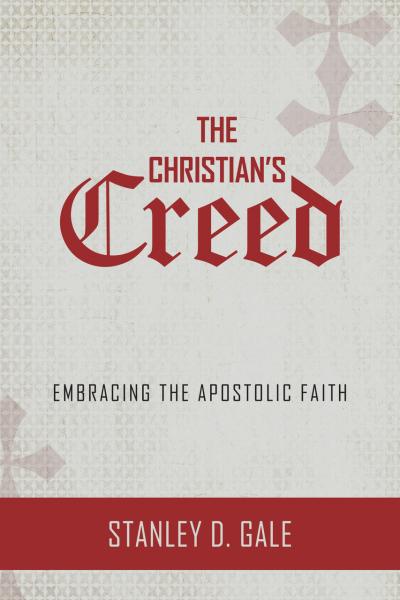The Christian's Creed

May 17, 2019
I am a member of an OPC church. When I tell people that, sometimes I feel the need to offer an apologetic, “It’s not like the image you have in your head of the fuddy-duddy, frozen chosens. We are a lively, hospitable community of believers.” It’s a healthy, thriving church with good doctrine, godly leadership, and a great body of brothers and sisters in the faith. So much so, that we attract Christians from different denominations into the OPC for the first time. Because of this, on the Sundays that we read the Apostles’ Creed together, sometimes visitors have questions. What do you mean by "the holy catholic church?” What are you saying about Christ descending to hell? We even have asterisks in the bulletin now, briefly explaining these two popular questions. This is the first time that some of these visitors have seen a creed confessed and they may have questions about the value of that as well.
This confusion does not make us want to stop this practice of confessing our faith in the same words as the early churches. It is exciting to share this practice with those who have been in a church maybe all their lives and never have been a part of putting words to worship, as Stanley Gale describes it in his little book, The Christian’s Creed: Embracing the Apostolic Faith. The Apostles’ Creed  gives us the core of the Christian confession of what we believe. “While Christian denominations feature their own emphases and nuances, the Creed spells out the core, the basics of the faith, the beating of the heart of the gospel” (3). Gale wrote his book as a way to familiarize the Christian faith, “as it unfolds in the profound simplicity of the Apostles’ Creed.”
gives us the core of the Christian confession of what we believe. “While Christian denominations feature their own emphases and nuances, the Creed spells out the core, the basics of the faith, the beating of the heart of the gospel” (3). Gale wrote his book as a way to familiarize the Christian faith, “as it unfolds in the profound simplicity of the Apostles’ Creed.”
 gives us the core of the Christian confession of what we believe. “While Christian denominations feature their own emphases and nuances, the Creed spells out the core, the basics of the faith, the beating of the heart of the gospel” (3). Gale wrote his book as a way to familiarize the Christian faith, “as it unfolds in the profound simplicity of the Apostles’ Creed.”
gives us the core of the Christian confession of what we believe. “While Christian denominations feature their own emphases and nuances, the Creed spells out the core, the basics of the faith, the beating of the heart of the gospel” (3). Gale wrote his book as a way to familiarize the Christian faith, “as it unfolds in the profound simplicity of the Apostles’ Creed.” My pastor saw this need in our own church community and taught a Sunday school semester on the Apostles’ Creed. Gale’s book is another great resource, as it is a pastoral book that breaks down the confessions in the Creed in a devotional way. Even if you are familiar with the teaching in the Creed, it’s a great reminder that can be used devotionally leading us in praise for who God is and what he has done.
I love to hear my pastor ask us what we believe. So often in my own teaching, I have found many Christians have a hard time articulating their faith well. The Apostles’ Creed helps us. There is something beautiful in answering as a congregation, joining with the church historic in confessing our faith together. “The Creed is liturgical (to profess in community), catechetical (to teach), confessional (to express alignment), and missional (as a light to life in Christ)” (4). Everyone benefits from studying it. Along with his book, Gale has an accompanying workbook available so that the church can benefit from this resource as a tool for discipleship.
And those first words of the Creed, “I believe,” should not be passed over as quickly as we may be tempted to in getting to the good stuff. I enjoyed that Gale opens with an entire chapter on the stand that we take in saying “I believe”, “weighty words expressing commitment and relationship with the God who has invited us to Himself…the beliefs of our invisible faith take shape when we clothe them with the statements of the Creed” (21-22).
Maybe your church has confessed the Creed every Sunday for as long as you can remember, and now it has just become routine for you. Gale’s book will help recover the meaningfulness in your profession, as every line of the Creed is packed with wonder. What a joy and honor it is to be a part of the Christian church, confessing our faith, and ending with a resounding “amen” together!




